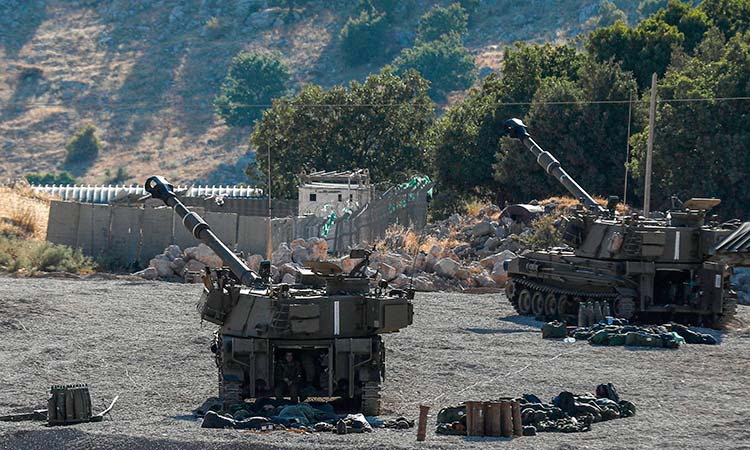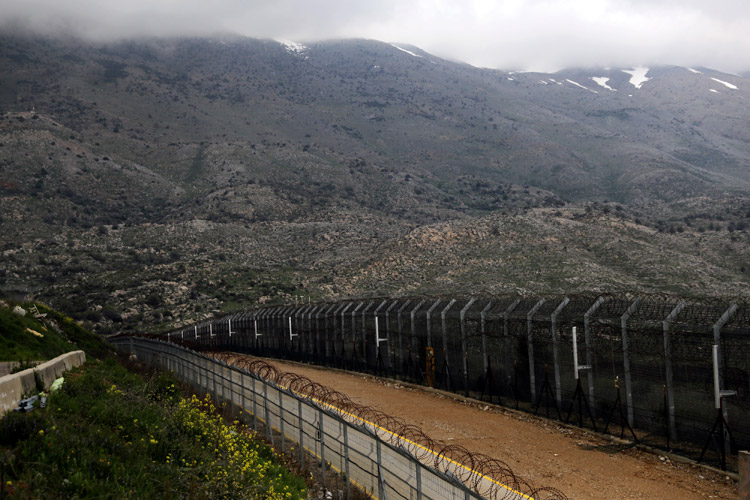Israeli army launches fresh strikes in Syria





Israeli strikes hit the vicinity of Damascus on Sunday. Photo has been used for illustrative purposes only.
Israel launched artillery strikes on Syria on Sunday morning, the Israeli army announced, after several rockets were fired from there and landed in the Israeli-occupied Golan Heights.
State media in Syria reported explosions in the vicinity of the capital Damascus as Israel said its forces continued to hit Syrian territory after six rockets were fired overnight towards the Golan Heights.
Israel said artillery and drone strikes hit the rocket launchers and were followed by airstrikes against a Syrian army compound, military radar systems and artillery posts.
"In response to the rockets fired from Syria at Israel earlier today, IDF Artillery is currently striking in Syrian territory," the military tweeted.
A drone was also "currently striking the launchers in Syria from which rockets were launched into Israeli territory".
Six rockets were launched towards Israel Saturday night, with two landing in the Golan Heights, the army said. At least one was intercepted by the Israeli air-defence system.
The 1,200 square kilometre (460 square mile) region — patrolled by Israeli soldiers and bordering Lebanon — was seized from Syria in the 1967 Six-Day War. Israel later annexed it in a move that was never recognised by the international community.
Lebanon-Based Al Mayadeen TV said the rocket salvoes were claimed by Al Quds Brigades, the armed wing of the Iranian-backed Palestinian Islamic Jihad movement.
The 1,200-square kilometre Golan Heights was seized from Syria in the 1967 Six-Day War.
On Thursday, more than 30 rockets were fired towards Israel from southern Lebanon, drawing cross-border counterstrikes from Israel on sites linked to the Hamas in Lebanon and Gaza.
Syrian state news agency SANA said the Israeli strikes took place around 5:00 am (0200 GMT).
Citing an unnamed military source, SANA said Syria's military had "intercepted the rockets... and brought down some of them".
The surge in violence and unrest comes as the Muslim fasting month of Ramadan, Jewish Passover, and Christian Easter coincide.
On Wednesday, Israeli police stormed the prayer hall of Al-Aqsa mosque, Islam's third-holiest site, in a pre-dawn raid aimed at dislodging "law-breaking youths masked agitators" they said had barricaded themselves inside.
The next day, more than 30 rockets were fired from Lebanese soil into Israel, which the Israeli army blamed on Palestinian groups, saying it was most likely Hamas, which rules the Gaza Strip.
Israel then bombarded Gaza and southern Lebanon, targeting "terror infrastructures" that it said belonged to Hamas.
It was the biggest salvo fired from Lebanon since Israel fought a devastating 34-day war with Iran-backed militant group Hezbollah in 2006 and the first time Israel has confirmed an attack on Lebanese territory since April 2022.
Israel and Lebanon are technically in a state of war, and the ceasefire line is patrolled by the United Nations Interim Force in Lebanon (UNIFIL), deployed in the country's south.
On the Syrian side, Israel has recently intensified its raids targeting positions of pro-Iranian groups.

No comments:
Post a Comment